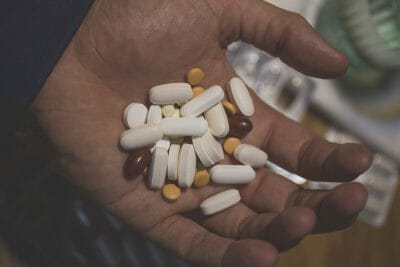The Battle Against Drug Addiction
The battle against drug addiction is one that many individuals face daily. It’s not just a physical dependency but also a psychological one, deeply entwined with emotions, experiences, and the very essence of one’s life. However, breaking free is possible, and the journey, while challenging, can lead to a fulfilling, addiction-free life.
Understanding the Roots of Addiction
Before embarking on the road to recovery, it’s essential to understand the underlying causes of drug addiction. According to the National Institute on Drug Abuse (NIDA), addiction is a complex disease, and quitting usually takes more than good intentions or a strong will[1]. Drugs change the brain in ways that make quitting hard, even for those who want to.
Factors influencing drug addiction:
– Brain Chemistry: Certain drugs may alter the brain’s composition, making the user crave the substance even more.
– Environmental Factors: Peer pressure, family and friends’ drug use, and socio-economic status can influence addiction.
– Mental Health: Conditions such as depression, anxiety, or other mental health disorders can make individuals more susceptible.
Steps Towards Breaking the Chains of Addiction
1. Acceptance
Recognizing and accepting the problem is the first step. The realization that drug use has become a detrimental part of one’s life is pivotal. This self-awareness can be the driving force behind seeking help.
2. Seeking Professional Help
Professional guidance, such as that from rehabilitation centers or therapists specializing in addiction, can provide the structured support needed. The Substance Abuse and Mental Health Services Administration (SAMHSA) has a helpline[2] that offers assistance in finding local treatment facilities, support groups, and community-based organizations.
3. Engaging in Detoxification
Detoxification is the process by which the body rids itself of drugs. It’s the primary step before one can receive further treatment. In certain cases, medication may be administered to ease withdrawal symptoms.
4. Behavioral Counseling
Counseling, whether individual, family, or group, can help patients identify root causes of their addiction, mend relationships, and build healthier life skills.
5. Medication
Certain drugs like nicotine, opioids, or alcohol addictions have medications which, combined with behavioral therapies, enhance the chances of recovery[3].
6. Long-term Follow-up
To prevent relapse, individuals should engage in long-term follow-up. This can include regular check-ups or continued counseling. Aftercare is essential in maintaining a drug-free life.
Challenges and How to Overcome Them
Recovery is a journey with its ups and downs. Triggers like old friends, stress, or even certain locations can lead to relapse. However, creating a strong support system, involving loved ones, joining support groups, and focusing on physical well-being can significantly aid in staying on track.
A Beacon of Hope
While the journey away from drug addiction is steeped in challenges, countless individuals have trodden this path and emerged triumphant. With determination, support, and the right tools and strategies, a drug-free life isn’t just a possibility; it’s a promise.
References:
[1]: [National Institute on Drug Abuse. “The Science of Drug Use and Addiction.”](https://www.drugabuse.gov/publications/drugfacts/understanding-drug-use-addiction)
[2]: [SAMHSA’s National Helpline – 1-800-662-HELP (4357)](https://www.samhsa.gov/find-help/national-helpline)
[3]: [National Institute on Drug Abuse. “Principles of Drug Addiction Treatment.”](https://www.drugabuse.gov/publications/principles-drug-addiction-treatment-research-based-guide-third-edition/principles-effective-treatment)
